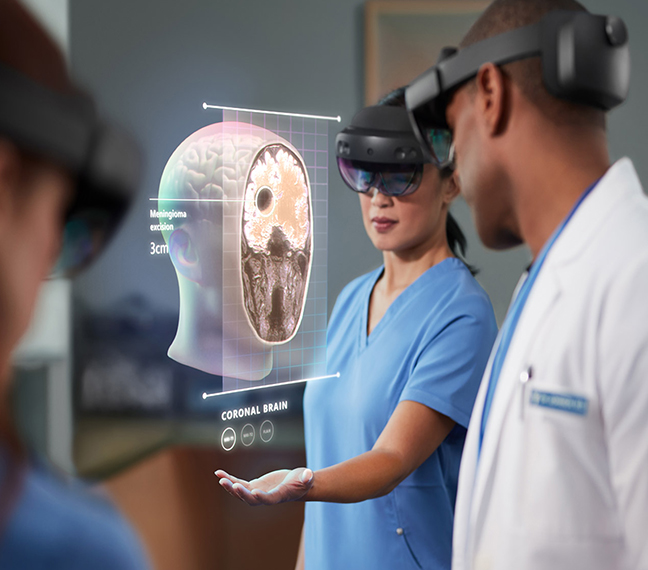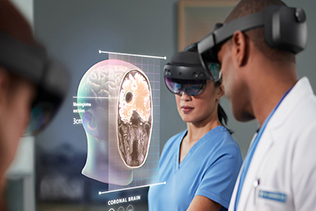USING THE CLOUD TO FIGHT COVID
Augmented Reality and the cloud are instrumental to Israel’s response to the pandemic.

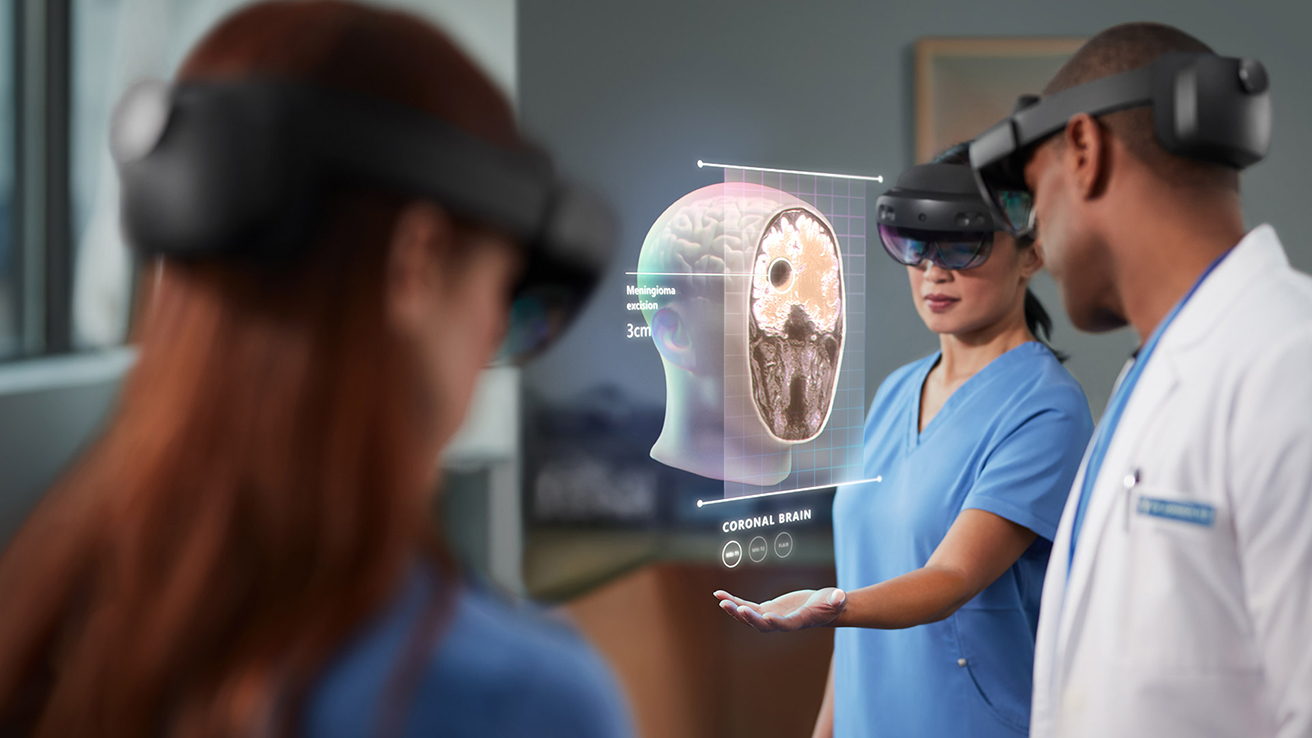
The COVID-19 pandemic poses many dangers. But our frontline health workers and hospitals becoming overwhelmed is perhaps the biggest threat to patients recovering from infection. Three Israeli hospitals are taking a high-tech approach to prevent this from happening: Using augmented reality (AR) and the Microsoft Azure cloud.

Three Israeli hospitals are taking a high-tech approach to prevent this from happening: Using augmented reality (AR) and the Microsoft Azure cloud.
Immersive field training
During a pandemic, beds fill up quickly and there aren’t enough medics to staff the ICUs. The immediate solution is to draft in doctors, nurses, and healthcare assistants from other specialties.
Outside of their usual departments, these highly trained individuals are confronted with unfamiliar equipment. Regular ICU staff must divert their time and attention to train them, at a time when every spare moment is needed to care for the backlog of patients.
The Sheba Medical Center – which hosts the Israel Center for Medical Simulation (MSR) – is developing step-by-step walkthroughs using Microsoft Dynamics 365 and HoloLens 2. Their goal is to provide immersive instructions for every device in the ICU, and beyond.
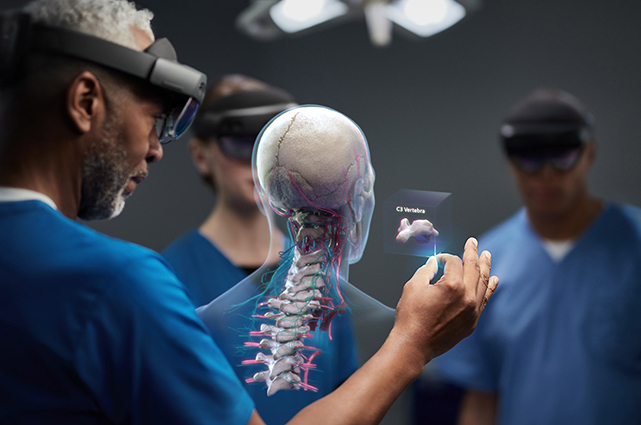
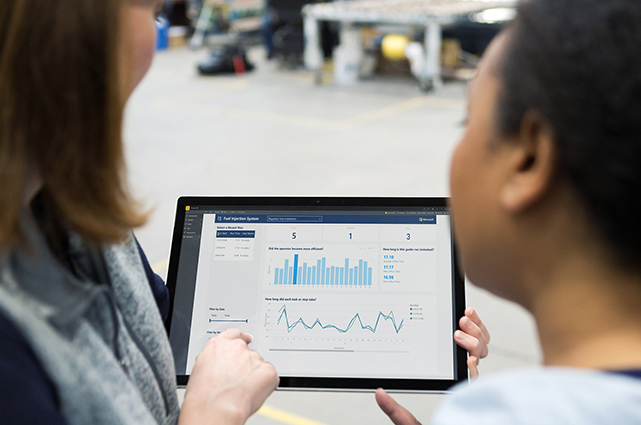
With a mixture of text, animations, and videos overlaid on the medics’ view of the physical machine in front of them, doctors and nurses can teach themselves to perform procedures, even if they’ve never previously used the device.
As a result, new recruits become immediately effective, allowing the focus to stay on the patients. Shiraz Ben-Shushan, PICU Nurse/Clinical Simulation Expert at MSR explains, “They can do it on their own and then afterwards ask me questions. This means that I can attend to other patients, rather than practicing with them.”
Keeping the team together
COVID-19 presents a greater risk to older people. Physicians are no different. Beilinson Hospital, of the Clalit health services group, is using HoloLens to patch in older doctors via Teams to share the view of younger residents and physicians. In this format, consultants can continue to guide more junior staff remotely, marking points of interest on patients or equipment using the virtual display. Surgeons can even practice on virtual organs, while being talked through procedures.
Microsoft Teams has proved vital for other areas of patient care as well. Beilinson Hospital uses the platform for team sessions, meetings, external collaborations, and sharing information. Integration with other Microsoft services has enabled the hospital to automate administrative processes and harness analytics for further optimization. “These solutions help save lives by improving our clinical performance,” says Shlomit Tamir, MD, Head of Abdominal Radiology Service.
Michael J. Drescher, MD, FACEP, Chief of Emergency Medicine agrees, “Being able to use our resources in a smarter way helps our staff make faster diagnoses and provide the right answers, even when doctors are physically distant.”
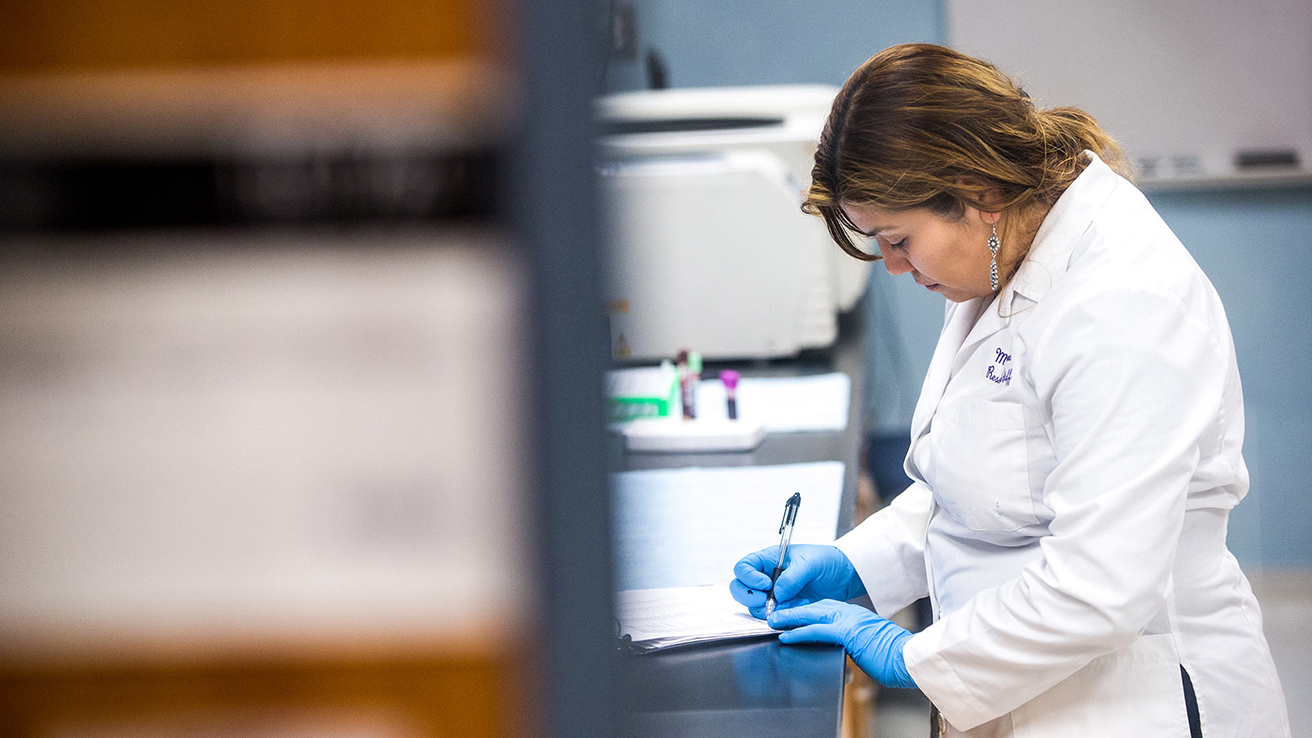
Machine assistance
At Ichilov Hospital, potential COVID-19 patients are triaged by healthcare bots. Users are taken through an initial questionnaire and brief AI-powered chat to assess their symptoms. Depending on the answers given by the patient, the bot provides an immediate response, automatically contacting ambulance services, directing the patient to attend the ER, or contacting their HMO as appropriate.
Upon arrival at the ER, medics are primed with all the information they need to start treatment. As such, the bot doesn’t replace healthcare workers, but it does substantially reduce their workload, allowing them to devote more attention to treatment.
Digital healthcare
These three hospitals are a showcase for Microsoft Israel’s broader strategy of promoting digital transformation as a powerful tool for social change.
80% of Israeli HMOs have so far adopted one or more Microsoft cloud solutions to increase patient engagement, accelerate team collaboration, and promote clinical and operational insights. Microsoft works with each hospital to individually tailor end-to-end solutions, providing consultation, guidance, and training along the way.
Such widespread adoption speaks to the success of Microsoft’s approach, and sets the stage for deeper transformation in the future – the dawning of a new, digital era in healthcare. On the evidence of these three hospitals, that can only be a good thing.


















